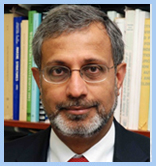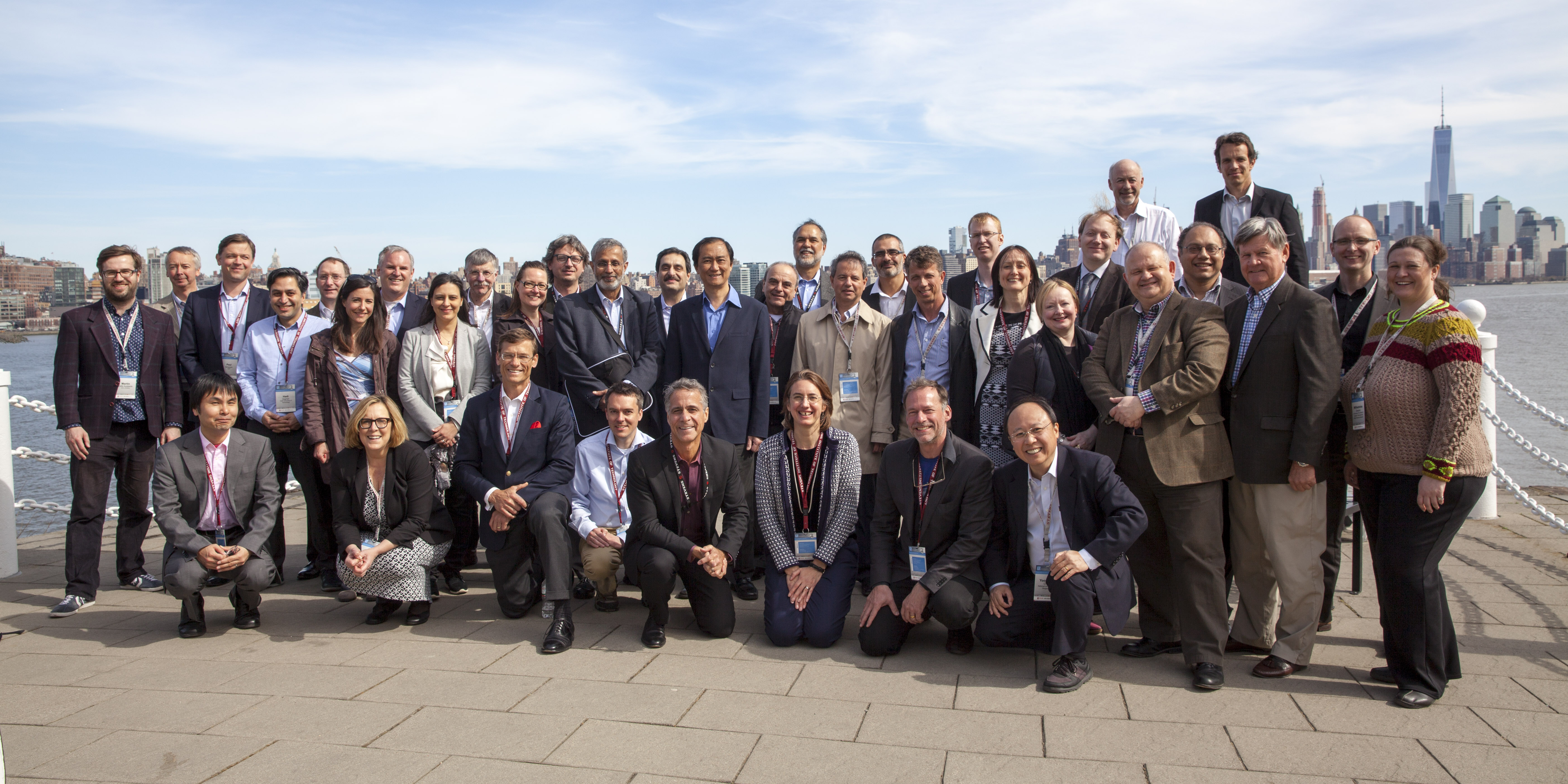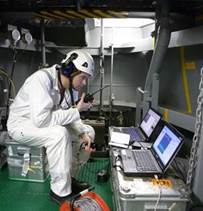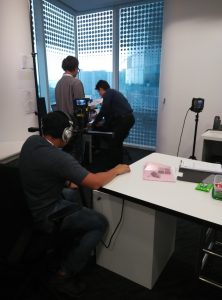 Professor Ajit Shenoi attended a Lloyds Register Foundation (LRF) workshop on Resilience Engineering held at the Stevens Institute of Technology, New Jersey, USA between 15 and 17 April. The proceedings of the workshop will inform the policy document for LRF to shape funding calls for their strategic priority on resilience.
Professor Ajit Shenoi attended a Lloyds Register Foundation (LRF) workshop on Resilience Engineering held at the Stevens Institute of Technology, New Jersey, USA between 15 and 17 April. The proceedings of the workshop will inform the policy document for LRF to shape funding calls for their strategic priority on resilience.
LRF is a registered charity in the UK whose mission is “to secure for the benefit of the community high technical standards of design, manufacture, construction, maintenance, operation and performance for the purpose of enhancing the safety of life and property at sea and on land and in the air”.
About 60 people from universities, research institutes, industrial entities, charities and government departments attended this event.

The discipline specialisations of the attendees spanned policy/economics, politics, various engineering specialisations (transport, civil infrastructure, offshore, etc.), medicine, environmental and other sciences, etc. The Southampton Marine and Maritime Institute (SMMI), in partnership with National University of Singapore and University of Western Australia, promoted the case for understanding resilience of the maritime infrastructural system (comprising the physical assets and the people/organisations who work in those environments) and the significant human population that depends crucially on the oceans for food, energy and other essential resources.
Monthly Archives: April 2015
Understanding of Fluid Dynamic Problems: CFD, Model tests and full scale measurements
 Date: Thursday, 30/4/2015
Date: Thursday, 30/4/2015
Room: Boldrewood Campus B176 Room 2013
Time: 14:00-15:00
Dr Dmitriy Ponkratov Senior Consultant at LR will be presenting this interesting LR/SMMI
Abstract
Despite of the fact that full scale measurements look like the most realistic, there are a lot uncertainties (hull roughness, wind, waves, current, water depth) which may affect the results. Moreover, they are usually scarce and even when available they are incomplete for validation purposes. Model tests can help to avoid these uncertainties as it is possible to simulate pure calm conditions in towing tank. However, the results can be again not realistic because of the scale effect. CFD has a possibility to calculate ships in full scale avoiding any scaling problems, but the numerical methods should be carefully validated, ideally against full scale measurements. So It can be concluded that only investigations in all three directions can help to better understand the fluid dynamic problems.
Biography
Dr. Dmitriy Ponkratov graduated the Saint-Petersburg State Marine Technical University, Russia in 2005. While writing his PhD thesis in 2006-2008, he was a Consultant to Marine Technology Research Institute in Norway and Ship Scientific Research Centre in China. Prior joining Lloyd’s Register he was an Associate Professor in Norway. Currently he holds the position of Senior Consultant at Lloyd’s Register, Technical Investigation Department, Southampton, UK. He is responsible for managing various Fluid Dynamic projects such as Computational Fluid Dynamic (CFD) investigations, model tests attendance, sea trials attendance, full scale cavitation observations, under water propeller inspections etc. He is a member of Royal Institution of Naval Architects, member of Technical Committee of International Society of Offshore and Polar Engineers and Chartered Engineer.
A* IHPC /SMMI Lab to feature in Singapore promotion video

Two FSI members of staff, Dr’s Nick Townsend and Adam Sobey were present during the filming. Celsius Tan the Executive Assistant from IHPC – SMMI Joint Lab reports that on the 17th March 2015, IHPC – SMMI Joint Lab venue was chosen to be part of a short video by A*STAR Corporate Communications to showcase the significance of the marine sector for Singapore’s economy, and the importance of R&D in the shipping industry. A*STAR Corporate Communications notes that the film.
The film will take a narrative approach that is inspired by movie trailers. This allows us to move quickly through a topic, with sequences which can be highly stylized and exciting. This video will have a slightly grander scope, looking at location shooting in the research labs as well as at a shipyard.
The following points will be brought into the script mix, adding the educational and emotional content to the story:
- Singapore is a seafaring nation
- Partnerships and collaborations are important to research
- Rising costs and competition mean that ships will have to be more efficient as well as durable. At the end of a ship’s lifespan scrapping has great environmental and human cost
- The marine sector is a significant engine of Singapore’s economy.
Outreach to potential ship scientists
PhD student Marion James and Part 2 Ship Science student Michael Beckett spent an enjoyable morning with Year 9 pupils at Alton Convent School illustrating some of the exciting opportunities that engineering presents. A design challenge based on sports equipment allowed the girls to appreciate quite how complex some of the choices faced by engineers are and the opportunities for creativity and innovation to complement analysis.
Fiona Hopkinson who coordinated the event from the school wrote afterwards
‘Many thanks again for your support in providing two such outstanding ambassadors for Southampton University… Attending the event were 20 gifted and talented scientists from two local schools, and all of our Year 9 students, 67 pupils in total. Research indicates that the ‘leaky pipeline’ for female scientists becomes apparent at A-level, however the decision has typically been made by 14 – hence the timing and target age group of the event. Our objective was to make the students aware of the many exciting and diverse opportunities opened by the pursuit of science, and the ability to combine engineering with other passions such as sport.
Your speakers were everything we could have hoped for and more – young, dynamic, fun and personable exceptionally high achievers. Thank you!’
We were able to provide support at quite short notice to this IMechE sponsored event during Science Engineering and Technology(SET) week. As a group we welcome approaches from organisations who would like to find out more about ship science, maritime engineering and the many opportunities it presents. We are happy to discuss possible outreach activities, ideally the more interactive the better and especially to groups currently underrepresented in the industry.
Arctic Scenarios – Opportunities and Challenges 23/4/15 12:30 room 1025/B175
Professor Fai Cheng, Head of Strategic Research and Technology Policy, Lloyd’s Register will be presenting on the challenges presented by the Arctic. ALL ARE WELCOME
Synopsis:
Those monitoring the effects of climate change agree that the pace of environmental transformation currently taking place in the Arctic is unprecedented. Such changes provide opportunities for business in areas as diverse as energy extraction, shipping and tourism. But these opportunities will only be fully realised if the businesses involved are able to manage the substantial, and unique, risks which exist in the region. There will be winners and losers as the impacts of climate change continue to shape the Arctic future. There is significant level of uncertainty about the Arctic‘s future, both technologically, environmentally and economically. The lecture aims to highlight the opportunities and challenges associated with different possible scenarios with particular emphasis on technical challenges.
